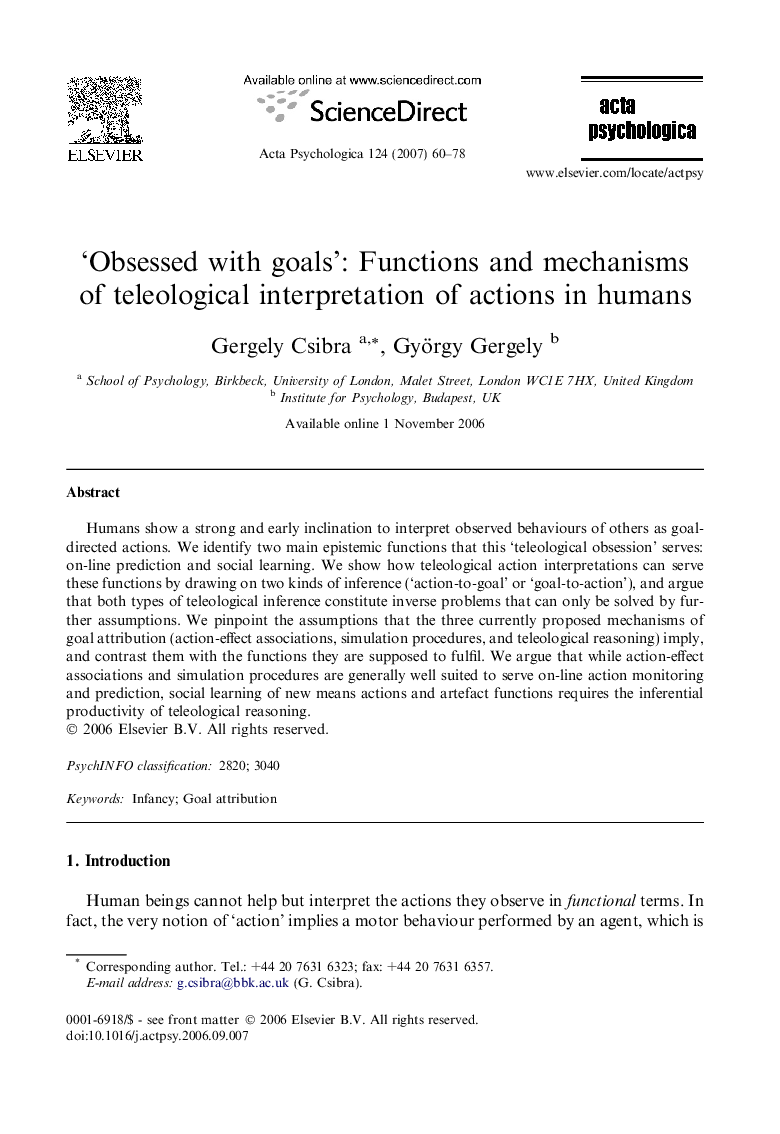| Article ID | Journal | Published Year | Pages | File Type |
|---|---|---|---|---|
| 920591 | Acta Psychologica | 2007 | 19 Pages |
Humans show a strong and early inclination to interpret observed behaviours of others as goal-directed actions. We identify two main epistemic functions that this ‘teleological obsession’ serves: on-line prediction and social learning. We show how teleological action interpretations can serve these functions by drawing on two kinds of inference (‘action-to-goal’ or ‘goal-to-action’), and argue that both types of teleological inference constitute inverse problems that can only be solved by further assumptions. We pinpoint the assumptions that the three currently proposed mechanisms of goal attribution (action-effect associations, simulation procedures, and teleological reasoning) imply, and contrast them with the functions they are supposed to fulfil. We argue that while action-effect associations and simulation procedures are generally well suited to serve on-line action monitoring and prediction, social learning of new means actions and artefact functions requires the inferential productivity of teleological reasoning.
